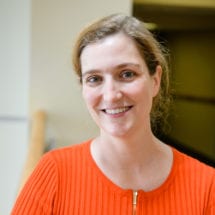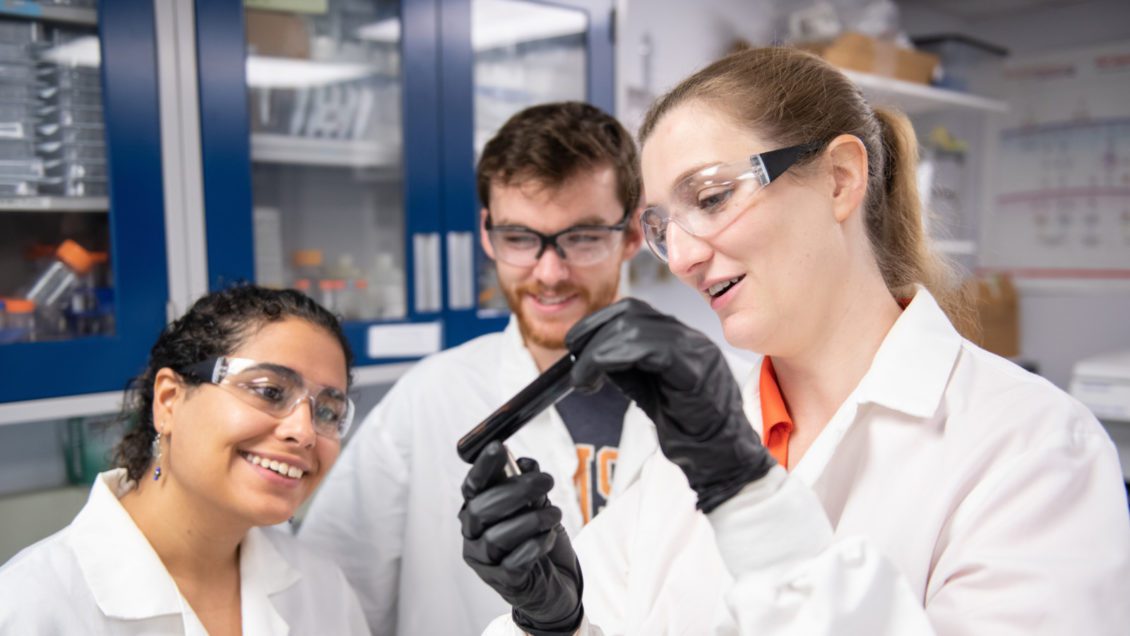One of bioengineering’s top honors is going to a Clemson University professor who has played a leading role in South Carolina’s response to COVID-19, has led efforts to develop medical devices for low-resource settings and has advised top lawmakers on issues ranging from the pandemic to diversity in healthcare professions.
Delphine Dean, the Ron and Jane Lindsay Family Innovation Professor, is among the newest members of the American Institute for Medical and Biological Engineering’s (AIMBE) College of Fellows.
Fellows are nominated each year by their peers and represent the top 2% of the medical and biological engineering community, according to AIMBE. Of the more than 2,000 Fellows around the world, three are Nobel Prize winners, 10 have won the Presidential Medal of Science and 10 have received the Presidential Medal of Technology and Innovation, according to AIMBE.

“This is a high honor,” Dean said. “I am grateful to be included in a group of such talented, innovative individuals. I thank all those who have supported me, including mentors, friends, students and family.”
Dean led efforts to set up the Research and Education in Disease Diagnosis and Intervention (REDDI) lab, a federally certified clinical diagnostics lab at Clemson, which is now key to the University’s COVID-19 testing strategy. She also serves as the Clemson lead on the state’s COVID-19 Serological and Diagnostics Testing Taskforce, a group that assembles teams to address the pandemic’s challenges.
Further, Dean holds regular conference calls with the state’s elected leaders and members of Congress to give advice on emerging technologies, screening strategies and testing capacity.
Over the summer of 2020, Dean led the Clemson COVID Challenge, a statewide undergraduate research and design program. Participants included more than 500 students, faculty and staff from 15 institutions, along with several policymakers.
In addition to her work with COVID-19, Dean for several years has led efforts to create medical devices for low-resource settings. She and her students visit rural areas of Tanzania, where they help fix medical equipment and come up with ideas for new low-cost devices that can be made with locally available resources.
Those devices have included a breast pump that removes HIV from breast milk and an ink-jet printer reconfigured to print strips that can be used to test blood sugar for diabetics.
Dean has presented her work to top Tanzanian officials, including former president, Jakaya Mrisho Kikwete.
Her international work has also reached to India, where she traveled in 2015 to establish partnerships between stakeholders in the subcontinent and the United States.
At Clemson, Dean directs the Tigers ADVANCE Pathfinders and Pathway programs, which aim to increase the diversity of faculty hires on campus.
She went to South Carolina’s State House at the lieutenant governor’s invitation to discuss how to create statewide efforts to bring more diversity into healthcare-related careers. Dean also helped lead a workshop arranged by the Governor’s Office to help women start entrepreneurship ventures.
Her lab’s expertise is in nano- to micro-scale characterization of biological tissues, including experimental techniques, such as atomic force microscopy and mathematical modeling. Dean studies cardiovascular cell mechanics and the effects of low-dose radiation on tissues and cells.
She has co-authored 55 journal paper publications, two book chapters, and is an inventor on three patents licensed and practiced.
Martine LaBerge, chair of the Department of Bioengineering at Clemson, said Dean is highly deserving of membership in the AIMBE College of Fellows.
“Dr. Dean is an extraordinarily hard worker, who radiates excellence, innovation and a passion for helping others, a record reflected in her many honors and awards,” said LaBerge, who is also a member of the institute’s College of Fellows. “I offer her my most sincere congratulations.”
Get in touch and we will connect you with the author or another expert.
Or email us at news@clemson.edu

